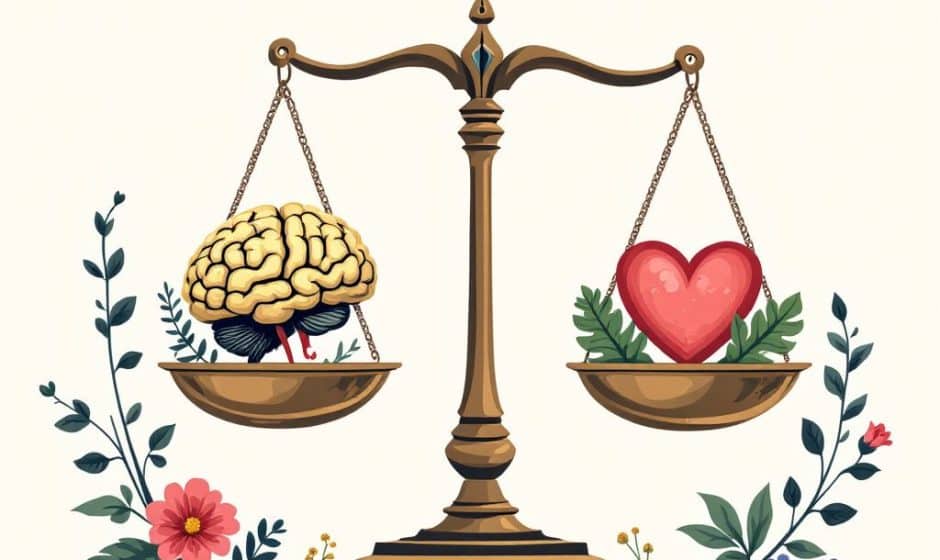So, you’re in college, right? Navigating the social scene, juggling classes, and probably wondering why everything feels like a roller coaster sometimes. Let’s be honest—college life is like a wild concoction of caffeine, late nights, stresses over assignments, and a dash of dirty laundry. But what if I told you that a lot of what you’re experiencing has a name and, more importantly, a solution? Yup, I’m talking about hormones.
Why Are My Emotions All Over the Place?
First things first, you’re not losing it; you’re just human. Hormones are buzzing around your body like a swarm of bees in springtime. They’re these chemical messengers that keep everything in your body in sync—but they can also throw it wildly off-balance during periods of stress. In the college terrain, the hormone rollercoaster usually involves cortisol (that tricky stress guy), serotonin (the feel-good patrol), and others like melatonin (the bedtime storyteller).
Now, here’s the scoop. Just like ice cream comes in more than vanilla, hormones are multifaceted. Miss a meal or lose sleep, and your hormones might act like someone hit the expectation button on a printer. Stress too much and, whoosh, cortisol levels go through the roof making concentration feel like trying to juggle flaming torches.
What’s up with Hormone Regulation?
Here’s where hormone regulation comes into play. Keeping your hormones balanced isn’t just a fairy tale—it’s possible! By managing stress, getting proper nutrition, and nailing that sleep routine, you can actually regulate these hormones. Sort of like tuning a musical instrument till it hits the right notes. It’s real science and doesn’t involve conjuring spells, honest! Trust me on this one.
The Relationship Between Hormones and Student Health

Seriously, if school’s stressing you, it’s likely affecting your health too. Your body’s like, “Hey, am I in a showdown or what?” Answering that stress with as self-care routine is crucial. But that’s easier said than done, right? Let me walk you through some actions that are practical and totally doable.
Keeping Your Hormones on an Even Keel
1. Get Some Sleep (No, Really, It’s Important)
Sleep is not just nature’s best lullaby; it’s fundamental for hormone regulation and student health. When the clock strikes midnight, don’t channel your inner night owl. Harsh advice, but your 2 a.m. escapades mess with your melatonin, the hormone that beckons rest. Try hitting the sheets at a well-planned time, and embrace a consistent sleep schedule.
2. Eat Like You Mean It
Remember grabbing packets of chips and calling it dinner? Yeah, that won’t fly. Balanced meals rich in protein, healthy fats, and carbs keep hormones stable. No need to become a chef—keep it simple with a bowl of oatmeal for breakfast or a veggie-packed sandwich for lunch. The key is moderation and consistent meal-timing to prevent the insulin spikes that make you as jittery as a squirrel.
Quick Snack Suggestions:
- Nuts & Seeds: Small but mighty in protein, which helps keep you fueled.
- Greek Yogurt: Packed with probiotics and calcium.
- Fruit Bowls: Great for quick energy with natural sugars.
3. Move That Body

Remember that hour or so you spent scrolling social media? Why not swap some of that for a brisk walk or dance-off in your dorm? Movement releases endorphins, those “happy hormones,” and helps decrease stress hormones. Look, you don’t have to run marathons. Just find something you genuinely enjoy.
4. Mindfulness, Not Just Buzzword Magic
Yes, it can sound all new-agey and whatnot, but mindfulness works wonders. Your worries about finals or messy group projects can cloud your brain—try grounding exercises or meditation. Just finding a quiet spot, focusing on your breathing can lower cortisol levels. Give it a try. It may feel awkward at first, like when you try a new hairstyle, but it’s incredibly beneficial.
5. Hydrate Like a Champion
Think of your body’s fluids as freeway lanes guiding hormones where they need to go. Staying well-hydrated maximizes efficiency. Ditch the constant soda binge in favor of water or herbal teas. They’ll earn your body’s MVP status.
Quick Recap: What You Can’t Forget

Alright, here’s the part where we got to call a spade a spade. Remember, not everything’s perfect overnight. Consistent effort is your best friend in hormone regulation. This isn’t just about a sky-high achieving student or superstar athlete; this advice is grounded in achieving good, steady student health.
Mistakes to Dodge:
- Burning the Midnight Oil: Your body will rebel hard against constantly disrupted sleep.
- Diet Ditch: Ignoring nutrition won’t only mess with your grades, but with your energy and hormone balance too.
- Hydration Hello, Stress Goodbye: Neglecting that water bottle isn’t going to earn you any favors.
- Ignoring Movement’s Magic: Skipping out on exercise isn’t just about gaining pounds, it’s hormone havoc too.
Hormone Balance and Modern Student Life
Remember, college is a journey, not a sprint. It’s an excellent platform to learn not just the academic facts, but about yourself, your health, and abilities you have yet to unravel. When hormone regulation becomes a priority, you’ll not only see improvement academically and socially but across your well-being spectrum.
Feel lost in the whirlwind sometimes? Remind yourself: it’s all part of growing up and learning to listen to your body. Help it along by implementing these steps. Trust the journey but meddle as needed. There you have it, college student hormones aren’t here to punish you. Take them by hand and lead until they dance to your rhythm. That way, you’re not just surviving college, you’re flourishing.
Alright, over to you—how are you planning to tune into your body’s station more effectively? Share this with your dorm mate who you know spends too many late nights cramming so maybe they can both get some decent rest. Whatever you do, keep these guidelines close, and you’ll be navigating through this wildly exhilarating thing called college in true style.
Frequently Asked Questions
What is hormone regulation?
Hormone regulation refers to the processes by which the body controls and balances the production and activity of hormones. This is primarily achieved through feedback mechanisms, such as negative feedback loops, which ensure that hormone levels remain within a narrow, healthy range[5].
How do feedback mechanisms regulate hormone production?
Feedback mechanisms, particularly negative feedback loops, play a crucial role in regulating hormone production. For example, in the case of thyroid hormone regulation, the hypothalamus and pituitary gland interact to control the thyroid gland’s hormone secretion. When thyroid hormone levels are high, they feedback to the hypothalamus and pituitary gland to reduce the secretion of stimulating hormones, thus maintaining homeostasis[5].
What are the symptoms of hormonal imbalance?
Hormonal imbalances can cause a variety of symptoms, including fatigue, sleeping issues, irritability, hot flashes, night sweats, changes in libido, and digestive issues. These symptoms can often be confused with signs of aging but can be addressed through hormonal balance restoration methods such as bioidentical hormone replacement therapy (BHRT)[2].
How can diet and exercise influence hormone regulation?
Diet and exercise significantly impact hormone regulation. Regular physical activity helps balance hormone levels, manage symptoms of hormonal imbalances, and improve overall well-being. Different types of exercises, such as aerobic, weightlifting, and flexibility exercises, can target various aspects of hormonal health and support the effectiveness of hormone therapy[3].
References



